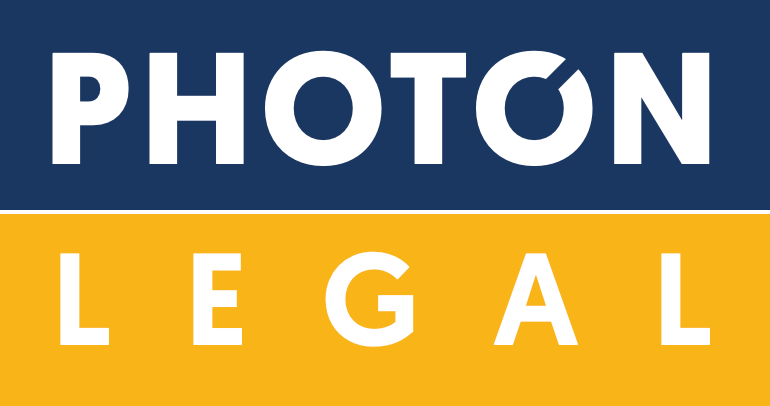Author – Anushree Capoor and Prayank Khandelwal
Introduction
India is a multi-lingual country with over 19,500 languages and dialects spoken across the nation. The Constitution of India recognised 22 official languages. In a country so rich in languages, it is natural for establishments to register their brand names or marks in their regional language or in the language familiar by their target market. An issue however arises when two businesses dealing with similar or identical goods or services have trademarks that are translations of the same word in different languages. For instance, a feud arose between Hindustan Unilever (HUL) and TG Balaji Chettiar [1] for their soaps with trademarks representing the sun. HUL had trademarked ‘Sunlight’ whereas Balaji Chettiar had trademarked the Tamil word ‘Surian meaning sun. Since both marks essentially represented the sun, the Court held that use of ‘Surian’ was deceptively similar and was bound to create confusion amongst consumers.
Indian Trademark law
Indian trademark law permits trademarks to be registered in regional as well as foreign languages. The Indian Trademarks Act, 1999 permits trademark filing in any language as long as such language is specified and a precise translation and transliteration of each word is provided in Hindi or English [2]. Such translations and transliterations have been mandated to identify if the same word has already been registered in any other language. However, since every word in every language has various synonyms, translated words are often not caught in the trademark search, as a result of which infringing trademarks are granted.
Judicial Pronouncements
Globally, one of the first cases wherein translations were held to be deceptively similar was the Golden Fan case. [3] In this case, an application was filed for a Burmese expression “Shway Latoung Fasai” which translated into Golden Fan Brand in English. The examiner observed that a similar product was already registered as the Golden Fan Brand and refused to grant the trademark. The Court upheld the decision and observed that “if the meaning of the foreign language mark was a mere verbal description of a mark already on the register, it could not be permitted to coexist.” This decision has been applied in toto in various cases in India. In the case of JC Eno v Vishnu Chemical Co [4], the product being sold was effervescent saline and Eno has registered its trademark as ‘fruit salt’. On the other hand, Vishnu Chemicals sold their product under the Marathi name ‘Falaxar’ which translates into fruit salt. In its ruling, the court held the defendant liable for passing off and observed that “if a trader was permitted to use words that had become associated with goods of another trader in another language, it would allow dealers to mislead and deceive individuals.”
Furthermore, in Bhatia Plastics v Peacock Industries Ltd [5], the applicant had registered its mark “Mayur” in respect of plastic goods and was seeking to restrain the defendant from using their mark “Peacock” in respect of similar goods. It was argued that “Mayur” was a Sanskrit word and not a term of ordinary parlance and that it would not confuse the consumers. Differentiating factors such as different target market, quality of goods, trading channels were also contended. However, the Court reiterated that since a literal translation of Mayur is Peacock, it conveyed the same idea and is thus deceptively similar to Mayur.
Relevance
The relevance of this topic has been augmented by the decision of the Delhi High Court inGillette Company LLC v. Tigaksha Metallics Private Ltd. & Anr[6] In this case, the trademarks in question were ‘Wilkinson Sword’ by Gillette and ‘Zorrik Talvar’ by Tigaksha Metallics. Even though both the trademarks were phonetically and structurally different, it was argued that since sword translated to Talvar in Hindi, it was bound to create confusion amongst consumers.
This case is landmark since it recognised scientific advances in the study of the psychology as a tool to determine ‘likelihood of confusion’. The Court forayed into various research papers and psychological theories such as the theory of “word association” and observed that our minds associate words with other concepts and words are not stored in isolation [7]. It further relied on Shree Nath Heritage Liquor Pvt. Ltd. v. Allied Blender & Distillery Pvt. Ltd. [8] to hold that “Marks containing words with the same sense relation as that of previously existing marks are likely to be considered similar so as to constitute infringement.”
Although this tool is anticipated to accurately depict ‘likelihood of confusion’, its continued use may push various brands out of the market. This would in turn have an impact upon whether and to what extent translations of language causes confusion.
Solution
Section 11(4) of the Indian Trademark Act, 1999 offers a solution to this issue in case of honest concurrent use or registrations of trademarks with same meaning. It explicitly states that “nothing shall prevent the registration of a trademark where the proprietor of an earlier trademark consents to the registration of the later mark” where such consent has been obtained through a written agreement. The Registrar may thus permit registration by two proprietors of trademarks that are similar through its powers under Section 12.
Conclusion
Through the ‘word association’ theory upheld by the Delhi High Court, it can be established that when consumers associate one word with a brand, we not only associate its synonyms but also translations of the word in all known languages. This reduces the scope for brand names of new applicants who need to ensure that there are no similar marks through a comprehensive trademark search. An all-inclusive trademark search by the applicant’s lawyer can save the time and money of the applicant in court litigations. For businesses that have identifiable rival marks, an attempt can be made to enter into consent agreement between the parties. Failing this, the rival trademarks are bound to be involved in a litigation, sooner or later.
[1] TG Balaji Chettiar v Hindustan Lever Ltd, AIR 1967 Mad 148
[2] Rule 28, Trademark Rules 2017.
[3] In re: Trademark of John Dewhurst & Sons Ltd (1896) 13 RPC 288
[4] AIR 1941 Bom 3
[5] AIR 1995 Delhi 144
[6] CS(COMM) 153/2017
[7] Prathiba M Singh v. Singh and Associates, 2014 SCC Online DEL 1982.
[8] 221 (2015) DLT 359
For any legal advice regarding your business, please reach out to us on- photon.ip@photonlegal.com
Stay in, Stay safe and continue to work.
Team Photon Legal.

